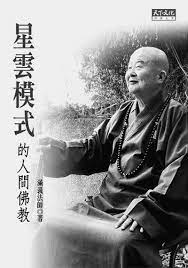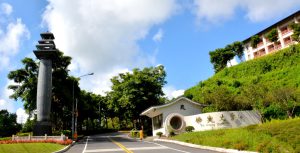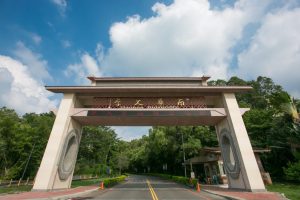 17 May, 2022
17 May, 2022 The Practice of Humanistic Buddhism for Health and Social Care in Hong Kong
AbstractThis research intends to collect, summarize, and analyze the practice of Humanistic Buddhism in Hong Kong society concerning the fields of health and social care.
With the establishment of the concept of "Humanistic Buddism", Buddhism is now no longer a “Reclusive Buddhism” that stays on the margins. As the concept of “Life Buddhism” was first proposed by Master Taixu, Master Yin Shun was inspired by Master Taixu and advocated the idea of “Humanistic Buddhism”. With the proposal of Humanistic Buddhism in the Hsing Yun Model by Fo Guang Shan, traditional Buddhism is bounded to modern society.

Around the world, Buddhist organizations have now made remarkable contributions to different charity activities including educational, medical, and relief. For example, Fo Guang Shan (FGS) Taiwan has founded two universities which are Fo Guang University and Nanhua University. FGS Taiwan also established the Cloud and Water Mobile Clinic to provide free medical services and has also founded a Compassion Foundation, which supports various social care services, such as disaster relief, rehabilitation & education, and promotion of Alzheimer's disease prevention.

Being a part of China, Buddhism in Hong Kong has been rooted long and deep. However, Humanistic Buddhism in Hong Kong society is not as influential as it is in Taiwan comparatively. Such differences are believed to be caused by the different political, economic, social, and cultural backgrounds between Hong Kong and Taiwan. Since there is no specialized research in studying Humanistic Buddhism’s influence and contribution to Hong Kong society, this research aims at filling this gap in academia by reflecting on the current situation of Humanistic Buddhism practice in health and social care. To see whether there will be possible suggestions for the future development of Humanistic Buddhism in Hong Kong society provided based on the analysis.

The methodologies of this research are as follows:
Firstly, the literature review is conducted to review the history of Buddhist involvement in health and social care sectors, analyses and expounds on its previous contributions.
Then, this research plans to interview Buddhist leaders and practitioners from relevant sectors (e.g. psychologists, therapists, hospice care workers, etc.) to gather their practical experience. By combining the information from history and the practitioners, this research attempts to analyze the advantages and difficulties of the Humanistic Buddhism development in Hong Kong.
Lastly, based on summarizing the analysis, to develop a feasible model of practice for the future development of Humanistic Buddhism.
In addition, to develop a workable model of practice, this research focuses on but is not limited to Humanistic Buddhism. This research may also attempt to compare the practical models of other religions to sort the valuable from the worthless, understand the shortcomings of existing practices and incorporate the strengths of the other models. The conclusion of this research may provide a reference for the development of Buddhism in Hong Kong. This model is not only a reference for the prospect for future development in Hong Kong but also a valuable reference for the development of Humanistic Buddhism in any metropolis similar to Hong Kong.
Deliverables
Peer-reviewed journal articles/conference paper (1-2), book manuscript (1)

